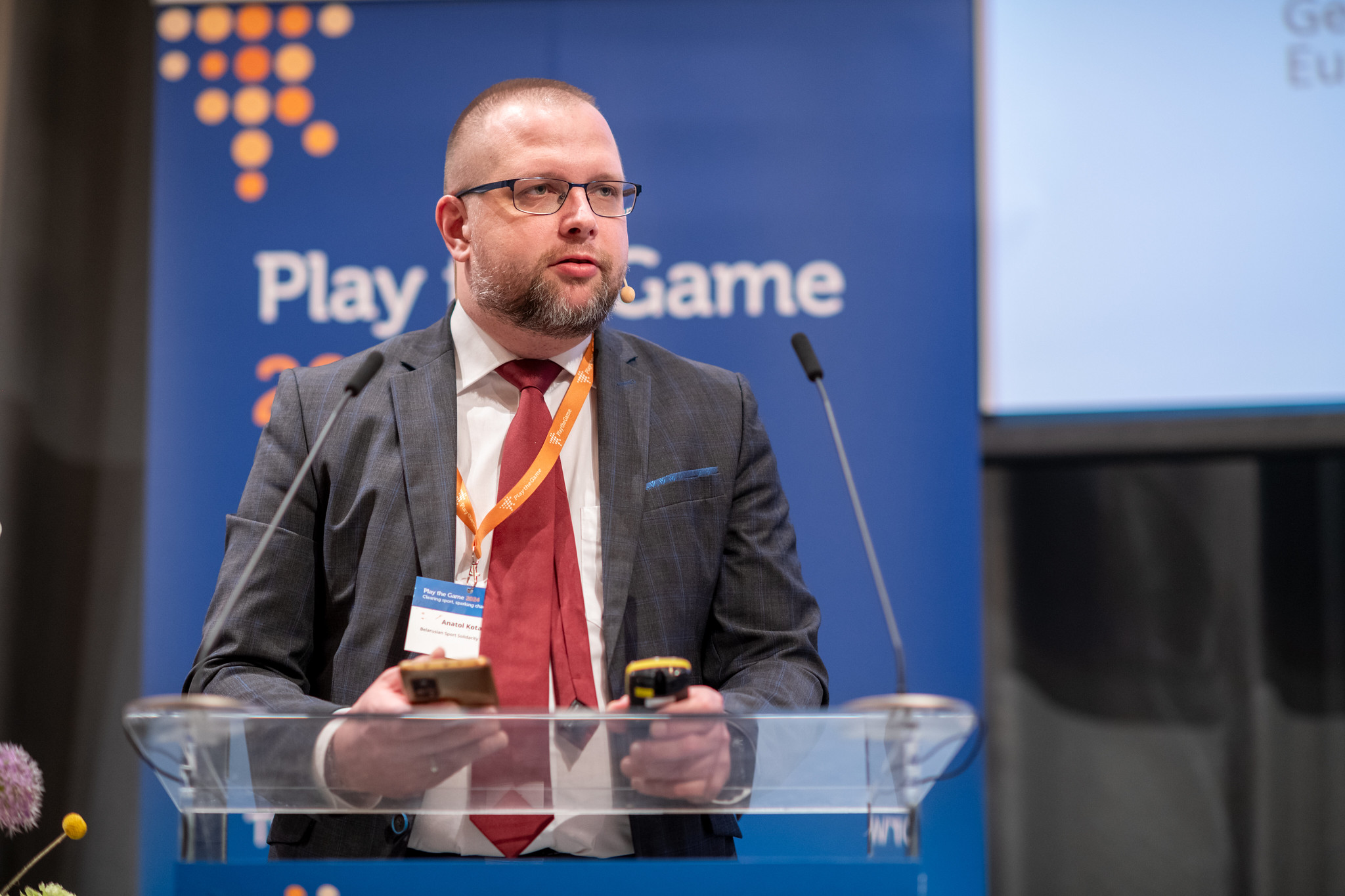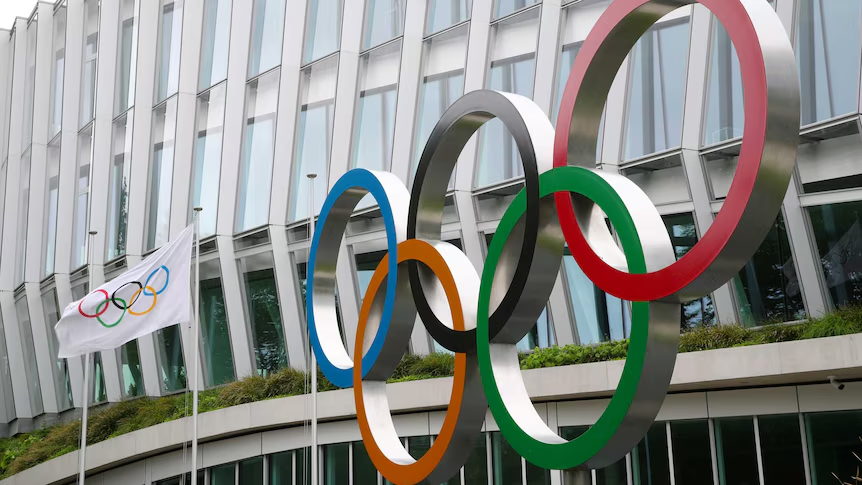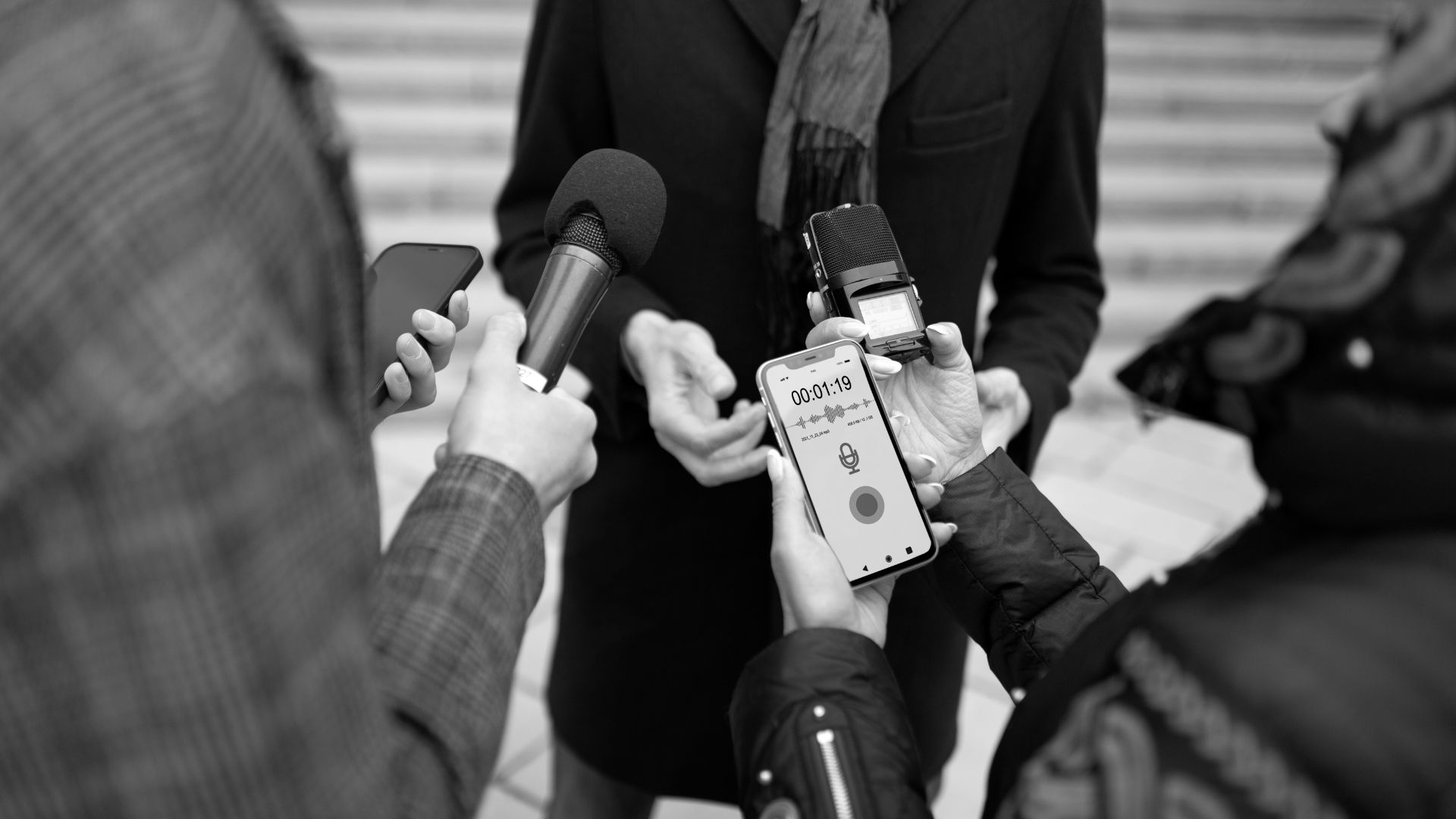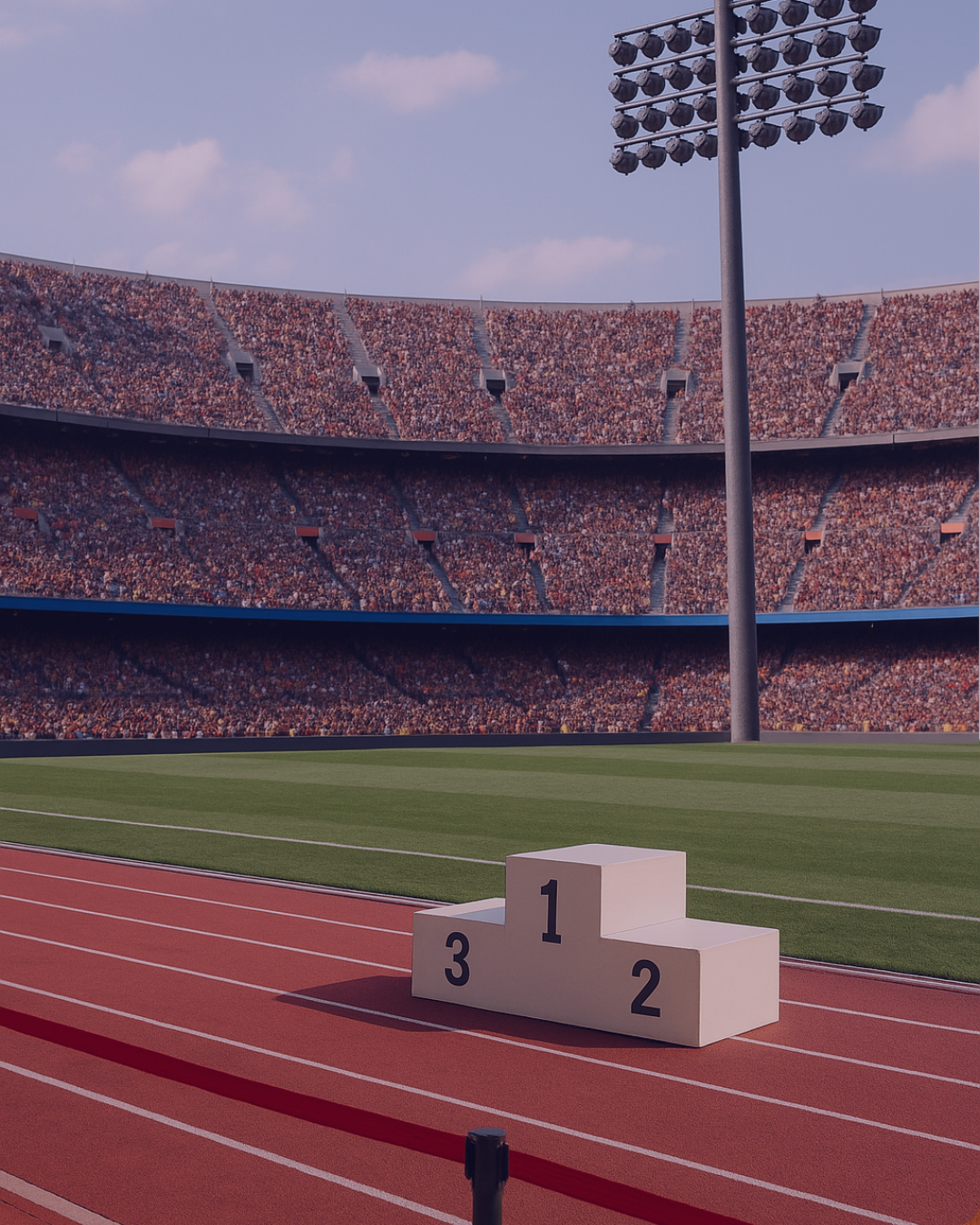This statement calls for inclusive approaches to ensure that everyone, regardless of gender identity or sex characteristics, can participate safely and equitably in sports.
We, the undersigned organizations and individuals committed to gender equality, human rights, social justice, and LGBTIQ+ rights, welcome the report on the right to participate in sports by Alexandra Xanthaki, the United Nations Special Rapporteur in the field of Cultural Rights.
From the elite athlete level to the community level, where the majority of participation in sports lies, we affirm that all people, including trans, gender diverse and intersex persons, must be able to realize their human right to participate in sports as an essential element of engaging in cultural life. We call for inclusive approaches that foreground the positive role that sports play in society and ensure that all people, regardless of their gender identity and sex characteristics, can participate in sports safely and equitably.
In a world in which we see increased opposition to the human rights of trans, gender diverse and intersex persons, the realm of sport has become a particular focus for attack. Equal inclusion of all in sports continues to be undermined by the rise of movements that oppose the universality of human rights and advance retrogressive interpretations of norms and standards. We are compelled to write this statement to draw attention to the rampant discrimination against trans, gender diverse and intersex people in sports, including under the guise of protecting cisgender women and girls. We reject the co-option of human rights mechanisms to position the protection and fulfillment of the rights of trans, gender diverse, intersex, and cisgender women and girls in sports as conflicting and incompatible and affirm that these rights and struggles are inextricably interlinked.
Many human rights bodies have clarified that the prohibition of sex-based discrimination is enshrined in core international human rights treaties and includes gender-based discrimination. As the Special Rapporteur in the field of Cultural Rights has highlighted in her 2024 report to the General Assembly, since 2010, the Committee on the Elimination of Discrimination Against Women clarified that “discrimination against women refers to both sex and gender. International law protects all women, including intersex and trans women; that protection includes their right to participate in sport.”1 The Special Rapporteur also warns that efforts to exclude trans, gender diverse and intersex women from women’s sports and categorize them as “male” are “unacceptable” and “may be regarded as hate speech.”2
However, the misinformation on the participation of trans, gender diverse, and intersex people in sports and the hate directed at trans, gender diverse and intersex athletes are at concerning levels.
Rhetoric and misinformation about trans, gender diverse and intersex women and girls have real-life consequences. They perpetuate harmful stereotypes and a fixed and binary understanding of gender and sex, increasing the risk of violence against trans, gender diverse and intersex women and girls within and outside sports. The most recent example was observed during the 2024 Paris Olympics, where two athletes who competed in women’s boxing, Imane Khelif and Lin Yu-ting, were heavily scrutinized and relentlessly targeted using hateful rhetoric that speculated about their sex characteristics and mischaracterized their gender. This hate speech was fueled by a highly discriminatory and violent practice in competitive sports: the invasive and harmful practice of “sex testing,” an examination of genitalia, chromosomes, and hormone levels of women and girl athletes to try to “prove” or “verify” their sex.3
In general, athletes whose sex characteristics, gender identity or sexual orientation do not comply with normative expectations face severe obstacles to participation in sports, as they routinely experience harassment and abuse, no matter the level of sport they participate in.4 Surveys of LGBTIQ+ people in sports in Europe have shown that an overwhelming majority believe that homophobia and transphobia are a problem in sports and have witnessed the use of such language in sports settings.
The violence experienced by trans, gender diverse and intersex athletes can be considered the extreme manifestation of a general pervasive and systemic violence and discrimination against women and girls in sports that require our attention, including both sexual and non-sexual violence and abuse perpetrated by coaches, trainers, sponsors, and others. Ensuring the health, safety, privacy, bodily autonomy and integrity of all women and girls in sports is crucial, including trans, gender diverse and intersex athletes. The misrepresentation of trans, gender diverse and intersex women as a threat to women’s rights and safety carries the high risk of diverting attention from these critical issues and hinders women who experience this kind of violence from access to justice. This not only undermines the gravity of the violence experienced by women and girls in sports but also reinforces patriarchal and colonial legacies. Historically, colonial patriarchal structures have used the concept of a strict binary sex distinction to assert white supremacy, relegating Black, Indigenous, and people of color (BIPOC), and especially Black women, to a lesser category of womanhood. The category of ‘woman’ has always been racialized, with white women expected to uphold the boundaries of sex difference to maintain the illusion of binary gender. These boundaries are upheld by violently enforcing them upon the bodies of any person who is seen as ‘non-conforming.’ As a result, athletes who have been disproportionately targeted to undergo sex testing and consequently forbidden to compete in the women’s category often come from the Global South and are women of color. The policing, in particular of intersex women’s bodies and the dismissal of women deemed ‘too masculine’ under the guise of fairness, has a chilling effect on all women’s participation in sports.
Several human rights mechanisms, including various Special Procedures, have emphasized the serious concerns with the exclusion of trans, gender diverse and intersex athletes from sports based on arbitrary classifications and eligibility rules based on testosterone levels, which are overly broadly constructed, and have drawn attention to intrusive and rights-violating practices like sex testing.5 Simultaneously, they have repeatedly emphasized intersectionality as an essential tool to understand and address complex forms of marginalization, discrimination and inequalities among different groups to avoid false dichotomies between rights.6 An intersectional analysis makes it evident, as UNESCO and UN Women also note, that “all women and girl athletes are susceptible to violence, but LGBTIQ+ athletes, athletes with disabilities, and athletes from disadvantaged racial, ethnic, migration, and/or socioeconomic backgrounds are at particular risk.”7 UN Special Rapporteurs have called for the removal of policies that require women athletes, including trans, gender diverse and intersex athletes, from undergoing unnecessary medical procedures to participate in sports and have called for reviewing the rules in relation to the participation of trans, gender diverse and intersex athletes in sports to ensure compliance with human rights standards.8
Sport has the power to transform lives, and all women and girls deserve the right to participate in sports free from abuse, violence, and discrimination, and ensuring the respect of their health, safety and dignity. Sports empower trans, gender diverse and intersex people, offer a sense of community, build essential social skills, and help dispel entrenched notions about the capacities and limits of the body.
We call for inclusive approaches that foreground the positive role that sports play in society and ensure that all people, regardless of their gender identity and sex characteristics, can participate in sports safely and equitably. We caution against implementing one-size-fits-all approaches like open categories that risk segregating trans, gender diverse and intersex athletes over case-by-case approaches that seek to balance fairness and inclusion. Efforts to ensure full inclusion in sports must not risk depriving trans, gender diverse and intersex athletes of the same opportunities that their cisgender peers enjoy, including “the best part of sport — learning from and growing with a diverse group of teammates.”9
References
1 https://documents.un.org/doc/undoc/gen/n24/235/12/pdf/n2423512.pdf, par. 74. “Although the Convention only refers to sex-based discrimination, interpreting article 1 together with articles 2 (f) and 5 (a) indicates that the Convention covers gender-based discrimination against women. … The application of the Convention to gender-based discrimination is made clear by the definition of discrimination contained in article 1.” Committee on the Elimination of Discrimination Against Women, General Recommendation No. 28 (2010). Moreover, in 2017, the CEDAW Committee issued its General recommendation No. 35 on gender-based violence against women, updating General Recommendation No. 19, explaining that “the concept of ‘violence against women’, as defined in general recommendation No. 19 and other international instruments and documents, has places an emphasis on the fact that such violence is gender based. Accordingly, in the present recommendation, the term ‘gender-based violence against women’ is used as a more precise term that makes explicit the gendered causes and impacts of the violence.” CEDAW/C/GC/35 (2017), para. 9.
2 “The expert reiterated the right of any person to their gender identity and to be respected in their dignity, as enshrined in articles 6 and 7 of the Universal Declaration of Human Rights. Denying adult women their right to gender self-identification, including by insisting on calling them “male”, is unacceptable and may be regarded as hate speech.”
3 OII-Europe statement condemning hate speech against two athletes competing in the 2024 Summer Olympics in Paris: https://www.oiieurope.org/condemns-hate-speech-against-two-athletes-olympics/
4 Some examples are: Ednanci Silva, an intersex former judo athlete, World Champion medalist, and two-time Pan American champion. In 1995, she was banned from competing after competitors signed a letter requesting her exclusion. To compete in the 1996 Olympic Games, she was forced to remove her testicle and uterus. Tiffany Abreu, the first trans woman to play in Brazil’s National League, started her gender transition in 2012. Despite following International Volleyball Federation rules, Tiffany has received backlash from the press and other volleyball players; and has been falsely accused of having an unfair advantage. Erika Coimbra, a cisgender former volleyball player, was excluded from competing at the Sydney Olympic Games in 2000 upon discovering that she was born with Morris syndrome, a rare genetic disorder characterized by androgen resistance.
6 In the specific context of sports, the UN Special Rapporteur in the field of cultural rights has drawn attention to the perceptions about the sporting abilities of racialized and Indigenous women that are influenced by racial and gender stereotypes about women’s bodies and notions of femininity.
9 For more information, see: Athlete Ally Responds to USAPL’s Harmful “Third Category.”







